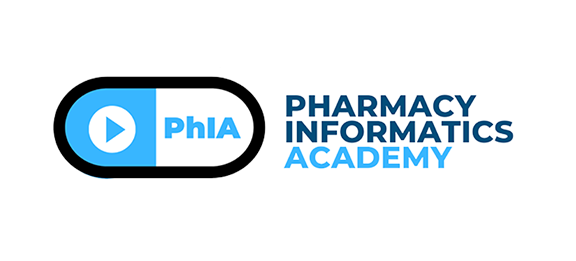The Difficult Reality of Pharmacy Informatics
Note: These are my own opinions and do not reflect those of my co-founders. This post was also recorded on the 200th episode of Pharmacy, IT, & Me.
There’s a major misconception in some circles that going into pharmacy informatics as a career is easier than going into other career paths. The difficult reality of pharmacy informatics is that it’s not easy, it’s a niche, and you have to integrate it into your life. I wanted to take some time to expand on this and remind those thinking of pharmacy informatics as a career path that it is not a walk in the park and will require a lot of hard work and the right motivations.

Pharmacy Informatics is a Niche Role
First thing to get out of the way: pharmacy informatics is a niche field. Most roles in pharmacy are still going to be in the community setting or the hospital setting, with some recent expansions in the ambulatory setting. Nontraditional roles are nontraditional because they are fewer in number than traditional roles, so know that the job market is just as competitive, if not more, for pharmacy informatics than it is for traditional roles of pharmacy.
I have heard from a handful of individuals that they decide they want to get into pharmacy informatics because it’s not as saturated so it’s easier to get a job. The problem with that statement is, even though there may be fewer qualified individuals to meet the requirements of an informatics pharmacist, the number of roles out there are also fewer in number. It isn’t going to be any less difficult to find a job in this role, and if you’re trying to get into informatics because it’s “easier to get a job”, then you may be in it for the wrong reasons. Speaking of which…
You Need the Right Motivation
You need to re-examine why you are getting into pharmacy informatics in the first place. If you do not have the right motivation, people will know.
Like I stated earlier, don’t just attempt to get into the field because you perceive it to be “easier”. Don’t try to get into the field because you think it’s a nice Monday-Friday job with 8am to 5pm hours. Don’t get into the role because you think that it will be a quick way to a prestige role. What you perceive may not be true at all.
Many informatics roles at health organizations are going to have on-call hours when working as a pharmacy informaticist. You may get calls at 3 AM on a Sunday during your vacation and you may be obligated to pick it up. If you are working as a pharmacy informatics specialist at a healthcare technology start-up, you may experience even crazier hours that will disrupt your normal routine. You will need to be ready to integrate this into your life. You must love your job for the right reasons, otherwise you will end up in a unfulfilled situation that will be difficult to get out of.
Do your homework and find a way to work with a currently practicing informatics pharmacist to really see if this lifestyle will be right for you before you devote yourself to it.
 You Need to Master the Art of Time Management
You Need to Master the Art of Time Management
Between break/fixes, requests, projects, reporting, and other tasks, you will need to have a strong ability to multitask and meet deadlines. In many nontraditional roles like industry, informatics, and managed care, deadlines and multitasking are part of what you breathe day-in and day-out. Time management and multitasking are absolute necessities when working in these roles and if you suffer from not being able to do this in your daily life, it’s going to translate into your role as an informaticist.
Just to provide a concrete example, my role as an informatics pharmacist is inundated with an enormous amount of projects. I have my routine break/fixes that I need to address as they come along, and I have enhancement requests that I work through. Some of these requests include creating new rules, troubleshooting CPOE or order set issues, and writing complicated report queries. In addition, I am part of multiple large projects where we roll out new functionality or new third-party applications integrated with our EHR. These projects require me to be part of the systems development life cycle, often incurring a lot of time in various interdepartmental meetings. I heavily rely on ITIL and my calendar to manage my time between the various aspects of my role.
You Can’t Just Jump Into Pharmacy Informatics Without Experience
Though there are some exceptions to the rule, you can’t just jump into pharmacy informatics after graduating without proper experience or training. We’ve previously posted an article with many certifications or certificates that you can attain, but these are never a replacement for the actual experience or formal training that you will need.
Being a good pharmacy informaticist in a health system doesn’t just mean you know the technology and you happen to be a pharmacist. Your value to the role comes from your experience as a pharmacist. You need to have the experience and training in what a pharmacist actually does in the normal workflow. Either you go through a residency program or you gain extensive experience in working as a clinical pharmacist. What’s the point of understanding the pharmacy technology and informatics component if you don’t know how to apply it to the medication use process? If you do not have the knowledge of operations, your role as a pharmacy informaticist is no different than an IT analyst, except the IT analyst role is broader and may be more useful in other IT tasks.
 You Need to Adapt Quickly and Often
You Need to Adapt Quickly and Often
Another challenge in pharmacy informatics is how quickly things will change in both the technology aspect and the regulatory aspect. Even though technology in healthcare is lagging behind compared to the tech industry, things are still rapidly changing, and you need to be able to adapt.
Just a few years ago, Meaningful Use was the common phrase being thrown around as hospitals and organizations were struggling to get on an enterprise EHR with CPOE, CDS, and BCMA technologies. Not too long after that, RFID technology, IV workflow software, automated dispensing cabinets, and more started to be commonplace. Now, we’re looking at advances in augmented reality, virtual reality, blockchain, data science, and even artificial intelligence. As an informatics pharmacist, you may be involved in these evolutionary changes because they may affect how your healthcare organization is providing care. If so, you are going to need to adapt or else you’ll be left in the dust.
 If You Know Pharmacy Informatics is Your Dream Job… HUSTLE
If You Know Pharmacy Informatics is Your Dream Job… HUSTLE
If you have considered everything I have written and still believe that pharmacy informatics is the career path you want to pursue, then you need to give it your all. Set goals, work hard, and don’t look back.
- Find a mentor, someone who’s currently living the life of an informatics pharmacist.
- Gain operational and clinical knowledge, preferably through working as a pharmacist for a good amount of time.
- Alternatively, do a residency to gain additional formalized training in pharmacy operations and potentially a PGY-2 specializing in pharmacy informatics.
- Network, network, NETWORK! Form meaningful connections and continue to develop those relationships throughout your career.
The path to a career in pharmacy informatics is not easy. You’re going to need to work very hard. It will be massively competitive. You will experience a large amount of pressure. You will stress to meet your goals.
But if you love the job, it’s all worth it in the end.


 You Need to Master the Art of Time Management
You Need to Master the Art of Time Management You Need to Adapt Quickly and Often
You Need to Adapt Quickly and Often If You Know Pharmacy Informatics is Your Dream Job… HUSTLE
If You Know Pharmacy Informatics is Your Dream Job… HUSTLE
July 3, 2020 @ 8:52 am
Great Article! Couldn’t agree more with all the points made especially about work experience in a clinical setting. I find students ask about Informatics as if it is totally separate from Clinical and has no relation which is a huge mistake. We’ve found one of the key factors to a great informatics pharmacist is their ability to understand and empathize with clinical pharmacists’ workflow and workload.
Regarding On-Call, not sure if anyone else feels this but our Informatics Pharmacists are never officially on-call (definitely don’t get paid for it) yet it always seems like we’re always “On-Call”.
July 20, 2020 @ 6:06 pm
Hi Daniel,
Thanks for the comments! When I used to precept students, I always emphasized the first week with the medication use process and clinical workflow and have them shadow and identify potential opportunities for improvement. I always thought that was good to give them perspective during intro week.
For the on-call situation, I’ve had experience in both types of scenarios. One of my previous health organization informatics roles, I was pretty much unofficially on-call 24/7 because there was no other back-up. In my currently role, there is a paid on-call rotation that rotates among the pharmacy informatics team members. I’ve also spoke to colleagues that have on-call rotations as an expected part of their job because they are salary employees. It seems to vary a lot within the field.
Tony
July 11, 2020 @ 4:42 pm
This is a very informative article. Thank you. I will do my very best to get some experience. I am currently interning at a hospital (I am a P2).
July 20, 2020 @ 6:07 pm
Hi Alicia,
That sounds great! Have you been able to ask if you are able to talk with the informatics pharmacist at the institution?
Tony
October 5, 2020 @ 10:42 pm
Great article, very informative! I’d like to add the following skills that are just as essential as the ones mentioned above: strong communication and relationship building skills. Once the technical skills are mastered the ability to translate the information to non-technical stakeholders and managers so they can understand and accept it is vital to being in Informatics. Also, relationship building is just as critical for someone in this role. Informatics pharmacists are involved in projects beyond the pharmacy department. You get to interact with other departments and everyone from nurses, physicians to IT personnel, finance and vendors. In my last role, as a cancer research informatics pharmacist, I was a member of a number of committees and led projects like quality improvement and medication safety.
November 14, 2021 @ 8:56 am
Great article. It is nice to feel understood in this niche role.
I have 8 years experience in Pharmacy Informatics, but no Pharmacy degree. Do you have any advice for someone like me to gain clinical knowledge?
February 14, 2022 @ 3:43 pm
Very educative,i am a foreign pharmacist how can i come into the uk and become an informaticst pharmacist.i have tried to search for msc informaticst pharmacy but no results for my search.please guide me and mentor me thanx
How do I get into pharmacy informatics? - What Type Degree
July 14, 2022 @ 10:48 am
[…] The Difficult Reality of Pharmacy Informatics : It’s Not Easy […]